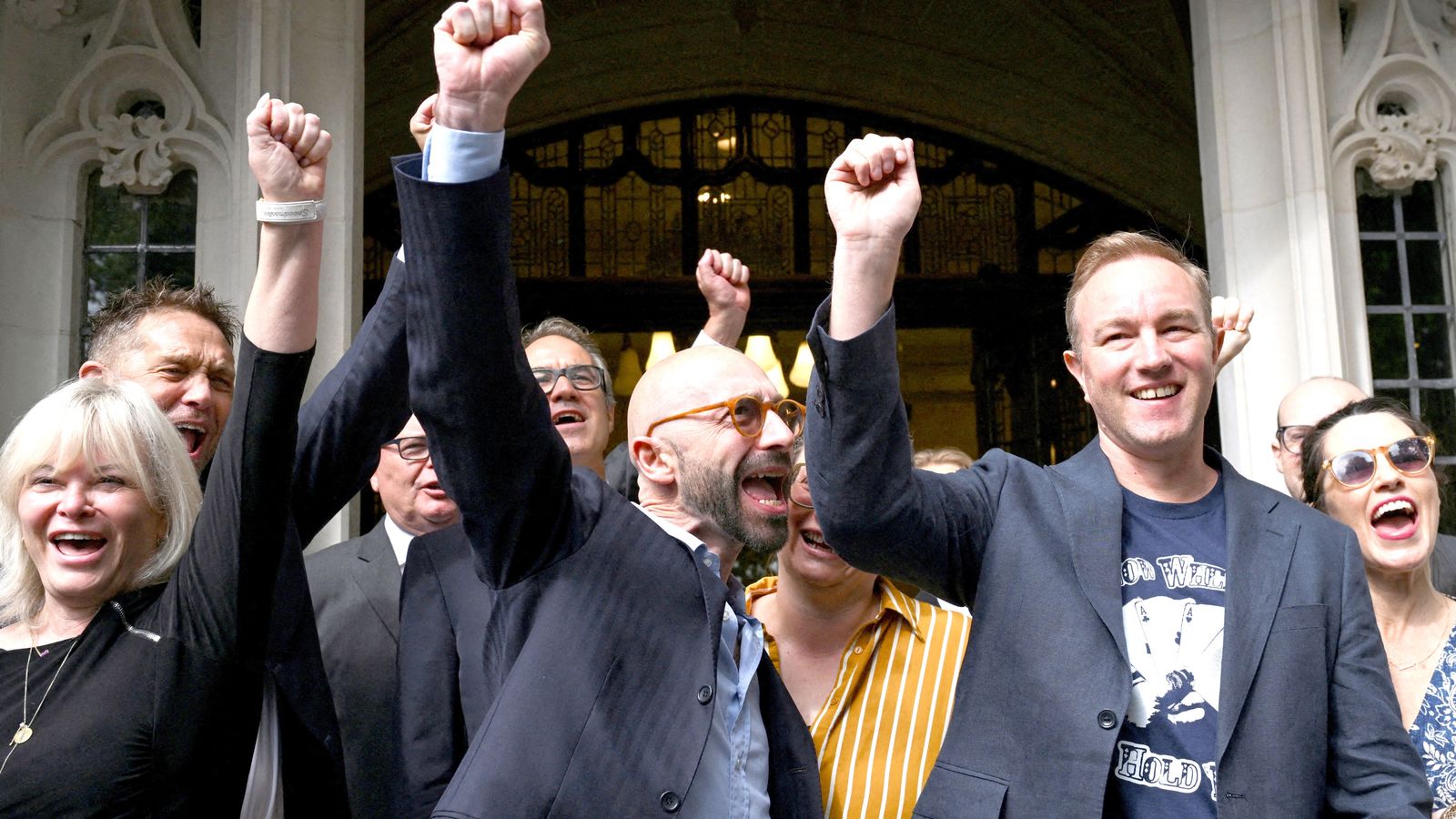Traders jailed for interest rate rigging have convictions overturned
Tom Hayes was the first person prosecuted over manipulating Libor rates, while Carlo Palombo was later convicted of rigging Euribor rates.
Two traders jailed for rigging benchmark interest rates have had their convictions overturned by the Supreme Court.
Tom Hayes, 45, was handed a 14-year jail sentence - cut to 11 years on appeal - in 2015, which was one of the toughest ever to be imposed for white-collar crime in UK history.
The former Citigroup and UBS trader, along with Carlo Palombo, 46, who was jailed for four years in 2019 over rigging the Euribor interest rates, took their cases to the country's highest court after the Court of Appeal dismissed their appeals last year.
The Supreme Court unanimously allowed Mr Hayes' appeal, overturning his 2015 conviction of eight counts of conspiracy to defraud by manipulating Libor, a now-defunct benchmark interest rate.
Ex-vice president of euro rates at Barclays bank Mr Palombo's conviction for conspiring with others to submit false or misleading Euribor submissions between 2005 and 2009 was also quashed.
Mr Hayes described the "incredible feeling" after the ruling and said: "My faith in the criminal justice system at times was likely destroyed and it has been restored by the justices from the Supreme Court today and I think it's only right that more criminal appeals should be heard at this level."
Both he and Mr Palombo have been described as "scapegoats" for the 2008 financial crisis, but Mr Hayes said: "We literally had nothing to do with it."
A spokesperson for the Serious Fraud Office (SFO), which opposed the appeals, said it would not be seeking a retrial.
In 2012, the SFO began criminal investigations into traders it suspected of manipulating the Libor and Euribor benchmark interest rates.
Mr Hayes was the first person to be prosecuted by the SFO, which brought prosecutions against 20 people between 2013 and 2019, seven of whom were convicted at trial, two pleaded guilty and 11 were acquitted.
He had also been facing criminal charges in the US but these were dismissed after two other men involved in a similar case had their convictions reversed in 2022.
Mr Hayes, a gifted mathematician who is autistic, was described at his Southwark Crown Court trial as the "ringmaster" at the centre of an enormous fraud to manipulate benchmark interest rates and boost his own six-figure earnings.
He has always maintained that the Libor rates he requested fell within a permissible range and that his conduct was common at the time and condoned by bosses.
Mr Hayes and Mr Palombo argued their convictions depended on a definition of Libor and Euribor which assumes there is an absolute legal bar on a bank's commercial interests being taken into account when setting rates.
The panel of five Supreme Court justices found there was "ample evidence" for a jury to convict the two men if it had been properly directed.
But in an 82-page judgment, Lord Leggatt said jury direction errors made both convictions unsafe, adding: "That misdirection undermined the fairness of the trial."






